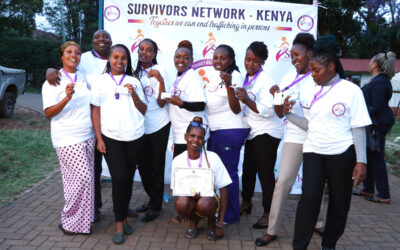Free the Slaves Executive Director Maurice Middleberg remembers there was skepticism that polio might one day be fully eradicated in developing countries. But 30 years ago, Rotary International began a global child vaccination campaign that is now close to achieving what once seemed like an impossible dream.
Maurice told Washington’s Rotary luncheon this week that the same kind of success can be possible in the global fight to end human trafficking.
“If you know the cause of the disease you can begin to kill it,” Maurice said. “That is really what we are trying to do” with slavery.
Maurice has spent much of his career in international development, so he knows firsthand that civic organizations can play a crucial role in bringing change to the disadvantaged in isolated communities.
“It is a special privilege for me to be at Rotary because I actually have a long history with Rotary,” he said. “Most of my carreer is actually in the global health field so I am intimately familiar with the contribution Rotary made to the elimination of polio. Change is in fact possible when people put their mind and hearts together for radical social change.”
Rotary’s polio program has contributed more than $1.3 billion and countless volunteer hours to immunize more than 2.5 billion children in 122 countries. In addition, Rotary’s advocacy efforts have played a role in decisions by donor governments to contribute more than $9 billion to the effort.
With the end of polio now in sight, Maurice urged Rotarians to follow his personal transition from public health to human rights.
“The images that you have in your mind about what slavery is like, that’s what I do,” he said. “My job is not depressing, I love my job because I actually get to be a part of the transition from slavery to freedom.”
Many Rotarians are now aiding the global fight to wipe out slavery. Maurice advised them that one of the best steps a Rotary member or chapter can take is to support the Free the Slaves model of preventing slavery in the first place. “Our work is to empower these highly vulnerable communities,” he said.
Maurice ended his talk with a personal story from a trip to a village India that FTS had helped liberate from slavery. When it was time to leave the village, residents started to sing a “freedom song.”
“That is what we are trying to achieve,” he said, “every community that has been enslaved can sing their own song about freedom, in their own language, in their own time, and that we hear that song of freedom in every community that is at risk.”



